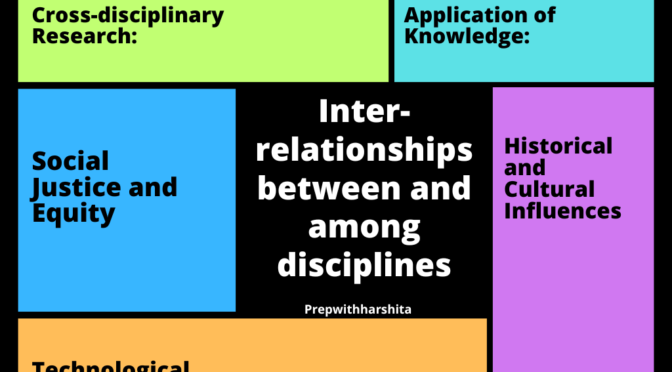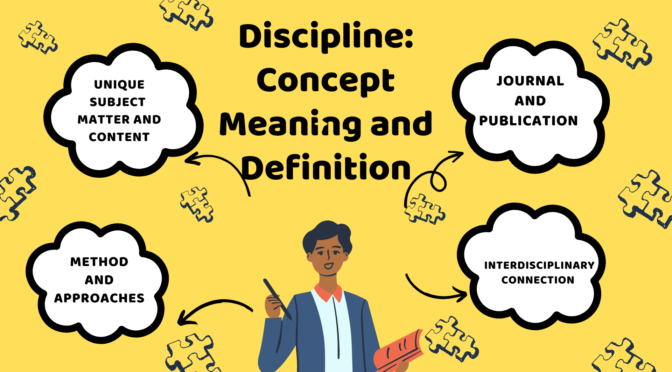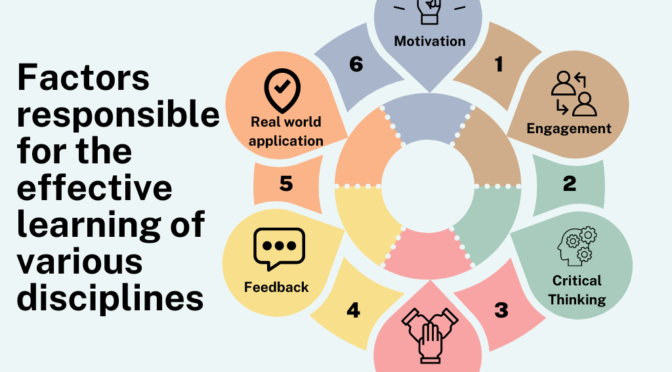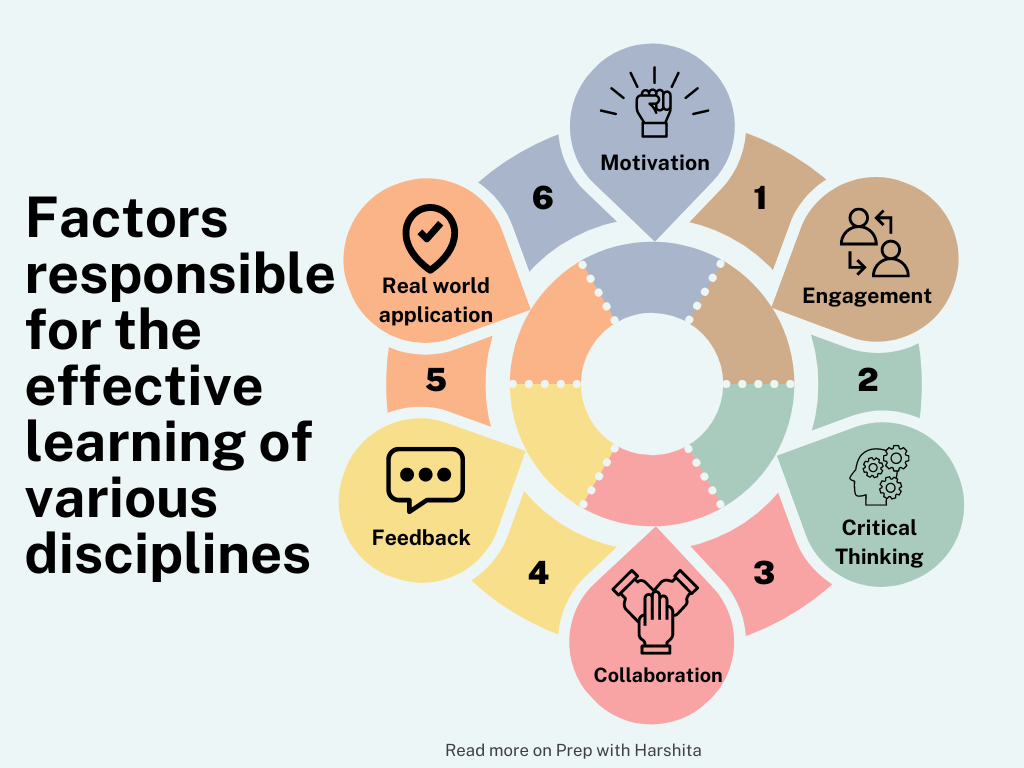The inter-relationships between and among disciplines, often referred to as interdisciplinary connections, highlight the interconnected nature of knowledge. While each discipline has its own focus and methods, there are numerous ways in which they overlap and influence each other.
Let’s study aspects of inter-relationships between disciplines:
Cross-disciplinary Research:
Scholars and researchers often engage in cross-disciplinary research, combining methodologies and theories from different disciplines to address complex issues. This collaborative approach can lead to a better understanding of a topic.
Application of Knowledge:
Knowledge from one discipline is often applied in another. For example, advancements in physics may have applications in engineering, and psychological principles may be applied in education or marketing.
Interdisciplinary Fields:
Some fields of study are inherently interdisciplinary, drawing on insights from multiple disciplines. Environmental science, for instance, incorporates elements of biology, chemistry, geography, and sociology to address ecological challenges.
Interdisciplinary Fields:
Many real-world problems and challenges require input from various disciplines to find effective solutions. Interdisciplinary collaboration allows experts from different fields to contribute their expertise to address complex issues.
Technological Advancements:
Technology often bridges the gap between disciplines. For example, developments in computer science have transformed fields such as biology (bioinformatics), physics (computational physics), and linguistics (natural language processing).
Historical and Cultural Influences:
Historical events and cultural phenomena combine multiple disciplines. Understanding historical events may require insights from history, sociology, political science, and economics, among others.
Global Issues:
Global challenges such as climate change, public health crises, and poverty require a collaborative, interdisciplinary approach. Solutions to these issues often involve contributions from fields such as science, economics, politics, and social sciences.
Also Read : Meaning of Discipline

Also Visit: Prep with Harshita





